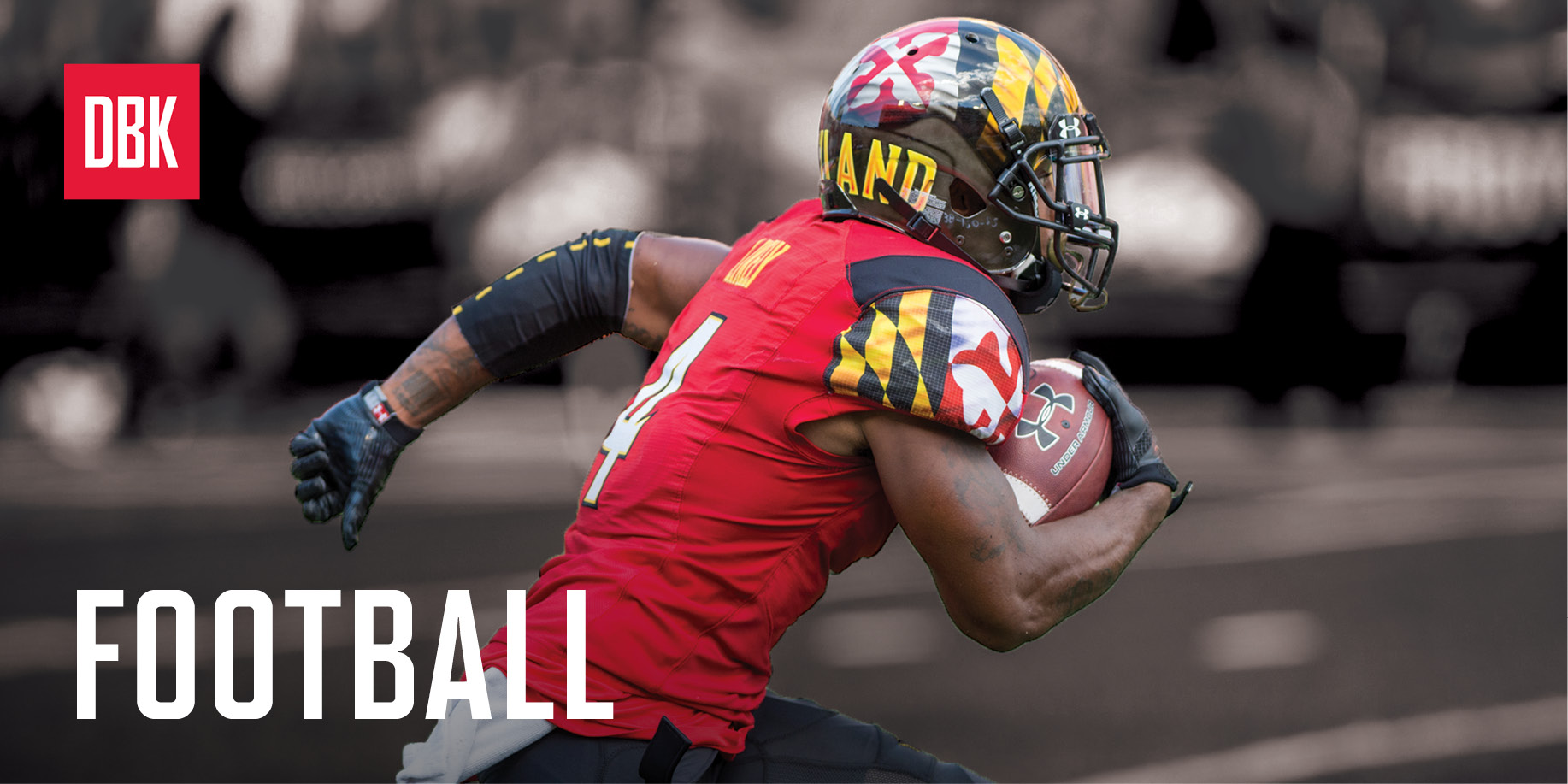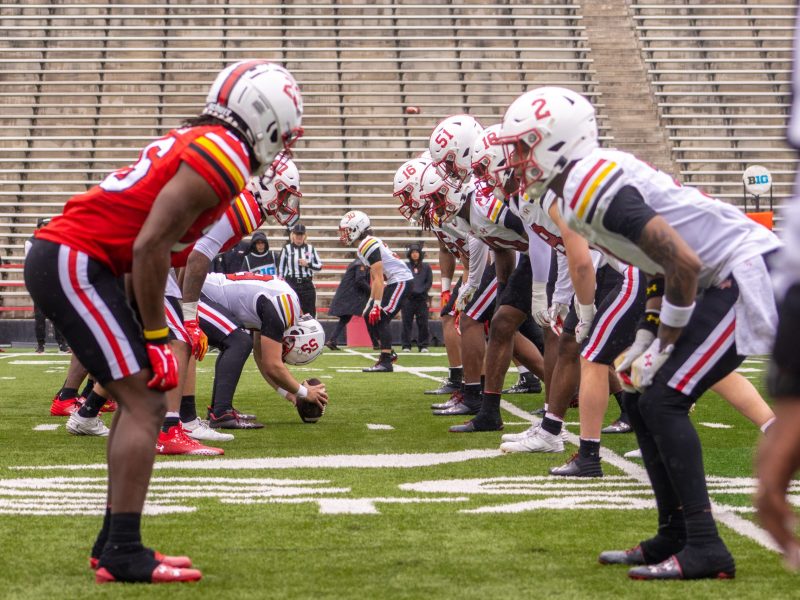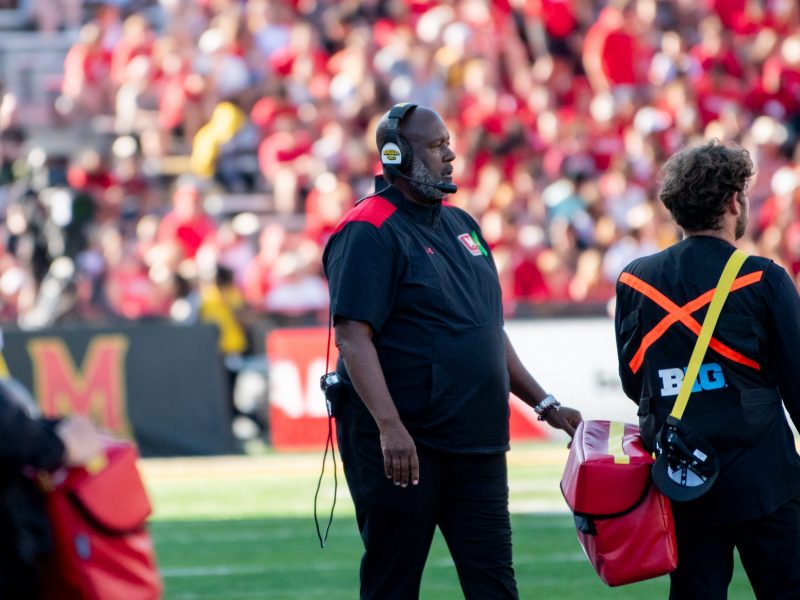When coach DJ Durkin took over the Maryland football program in the offseason, he had a challenge for wide receiver Levern Jacobs. Jacobs paced the Terps in 2015 with 35 catches for 425 yards and three touchdowns, but the new staff wouldn’t guarantee any player a first-string spot.
Durkin and offensive coordinator Walt Bell wanted to see Jacobs improve his perimeter blocking on rushing plays.
As the coaches hounded him, and as he endured the physicality of the team’s grueling offseason workouts — building the toughness Durkin has preached for his program to embody — Jacobs thought back to a saying from his mother: “When the person stops talking to you, that’s when you need to be worried.”
After making 10 receptions — a career high for the redshirt senior — for 82 yards against Minnesota on Saturday, Jacobs sat at a table in Maryland Stadium’s Tyser Tower a few days before the team’s duel with Michigan State this weekend, and said Durkin’s pressure has worked.
“Him getting on me is just making me better, a better player, because at the end of the day, everybody on the team wants to go to the NFL, and the only way you’re going to get there is if the head coach stays on you,” Jacobs said. “That lets me know that he’s watching me, so that I’ve got to pick up my game, take my game to the next level.”
His mother’s reminder stayed with him as he started the season on the second-team offense. Durkin’s group didn’t care about Jacobs’ production a year before. He had to re-prove himself to the new regime.
In practices, Jacobs worked with the backups, developing chemistry with freshman quarterback Tyrrell Pigrome and embracing the perimeter blocking drills.
Similar to the offensive and defensive linemen’s inside blocking drills, the exercise pits the wide receivers and defensive backs against one another on the outside for about four or five yards of downfield blocking. It simulates live-game speed, Bell said, and serves as better repetition than mirroring blocks against a coach or dummy.
Jacobs’ work in the exercises showed, and he moved to the top of the team’s depth chart for the first time in 2016 entering the Terps’ contest against Penn State.
In the loss to the Nittany Lions, Jacobs set a block on running back Ty Johnson’s 66-yard screen score. He ran toward the sophomore in the end zone, screaming in celebration. Jacobs said the play was his favorite of the season.
“He’s a very talented guy,” Durkin said, “but he didn’t always play with that type of effort, that type of determination.”
“Not to say that he was a guy that you would label, you know, as soft,” Bell added, “but just to see him kind of embrace it and actually become kind of an enforcer out there on the perimeter for us has been big.”
Bell, though, believes there’s a tangible benefit from the wide receivers’ work in the ground game — some good karma from the sport’s higher powers.
“I believe in the football gods, and the better that he’s gotten at [blocking], the football gods have rewarded him with the little brown ball with the white laces on it that those guys covet so much,” Bell said. “As his toughness on the perimeter has increased, all of the sudden, the ball’s started to find him a little bit more.”
Bell’s theory proved true against the Golden Gophers, Jacobs’ best outing. He served as Pigrome’s top target in the rookie’s first career start, flashing the rapport the two developed as preseason reserves.
Durkin said quarterback Perry Hills, who has been out with a shoulder injury, will be a “game-time decision” for Saturday’s game against Michigan State. But Jacobs isn’t worried about who lines up under center against the Spartans.
After the Terps stalled for 130 total rushing yards and endured their second consecutive loss last weekend, Jacobs wasn’t happy.
“I missed a lot of key blocks in the game that could have opened up a bunch of big run plays,” Jacobs said. “But it’s definitely a game I could build on.”



